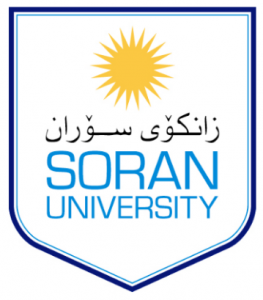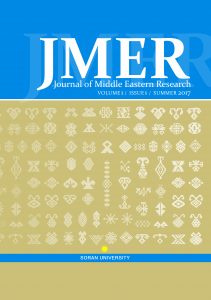Abstract
A concise and factual abstract is required (maximum length of 250 words). The abstract should state briefly the purpose of the research, the principal results and major conclusions. An abstract is often presented separate from the article, so it must be able to stand alone. References should therefore be avoided, but if essential, they must be cited in full, without reference to the reference list.
Keywords
Immediately after the abstract, provide a maximum of 8 keywords, avoiding general and plural terms and multiple concepts (avoid, for example, ‘and’, ‘of’).
Subdivision of the article
Divide your article into clearly defined and numbered sections. Subsections should be numbered 1, 2. (then 1.1, 1.1.1, 1.1.2), 1.2, etc. The abstract is not included in section numbering.
Table and Figures
Present tables and figures at the end of the article. Please note that the article will be published in black and white.
References
Author(s) should follow the 16th edition of Chicago style in referencing. Please visit
(http://www.chicagomanualofstyle.org/home.html) to learn more about Chicago Style.
The author-date system
In this system, sources are briefly cited in the text, usually in parentheses, by author’s last name and year of publication. Each in-text citation matches up with an entry in a reference list, where full bibliographic information is provided.
Please ensure that every reference cited in the text is also present in the reference list (and vice versa). Avoid citation in the abstract. Unpublished results and personal communications should not be in the reference list, but may be mentioned in the text. Citation of a reference as ‘in press’ implies that the item has been accepted for publication.
The following examples illustrate the author-date system. Each example of a reference list entry is accompanied by an example of a corresponding in-text citation. For more details and many more examples, see The Chicago Manual of Style.
- Book
Reference list entries (in alphabetical order)
- Matin, Kamran. 2013. Recasting Iranian modernity: international relations and social change. London: Routledge.
- Kreyenbroek, Philip and Khalil Jindy Rashow. 2005. God and Sheikh Adi are Perfect: Sacred Poems and Religious Narratives from the Yezidi Tradition, Wiesbaden: Harrasowitz Verlag.
In-text citations
(Matin 2013, 108)
(Kreyenbroek and Rashow 2005, 49-53)
2. Chapter or other part of an edited book
In the reference list, include the page range for the chapter or part. In the text, cite specific pages.
Reference list entry
- Hassanpour, Amir. 2015. “Nation and nationalism,” In Marxism and Feminism. Edited by Shahrzad Mojab, 239-58. London: Zed Books.
- Vali, Abbas. 2003. “Nationalism and the Question of Origins” In Essays on the Origins of Kurdish Nationalism. Edited by Abbas Vali, 1-14. Costa Mesa: Mazda Publisher.
In-text citation
(Hassanpour 2015, 245-6)
(Vali 2003, 3)
In some cases, you may want to cite the collection as a whole instead.
Reference list entry
- Mojab, Shahrzad, ed. 2015. Marxism and Feminism. London: Zed Books.
In-text citation
(Mojab 2015, 245-6)
3. Journal article
In the reference list, include the page range for the whole article. In the text, cite specific page numbers. For articles consulted online, include a URL or the name of the database in the reference list entry. Many journal articles list a DOI (Digital Object Identifier). A DOI forms a permanent URL that begins https://doi.org/. This URL is preferable to the URL that appears in your browser’s address bar.
Reference list entries (in alphabetical order)
- Alinia, Minoo. 2015. “On Black Feminist Thought: Thinking oppression and resistance through intersectional paradigm.” Ethnic and Racial Studies, 38: 13, 2334-2340. http://dx.doi.org/10.1080/01419870.2015.1058492
- Bozarslan, Hamit. 2014. “The Kurds and Middle Eastern “State of Violence”: the 1980s and 2010s.” Kurdish Studies, 2: 1, 4-13.
In-text citations
(Alinia 2015, 2335-6)
(Bozarsalan 2014, 8)
Reference List
References should be arranged first alphabetically and then further sorted chronologically if necessary. More than one reference from the same author(s) in the same year must be identified by the letters “a”, “b”, “c”, etc., placed after the year of publication.
Submission Preparation Checklist
1- The submission has not been previously published, nor is it before another journal for consideration.
2- The submission file is in Microsoft Word file/ PDF format.
3- Manuscript has been made in the light of Journal’s author guidelines.
4- Author(s) did not mention his or her name and affiliation in the main text.
5- Author(s) has read all the terms and conditions of the journal.



